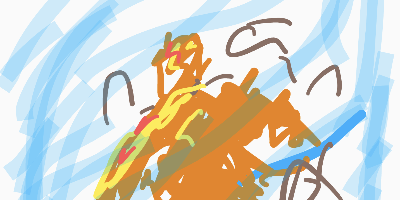Wolfger / Volchero von Erla (24 giug 1204 anni – 23 gen 1218 anni)
Descrizione:
http://web.infinito.it/utenti/f/francots/fvg/fvg5.htm#:~:text=other%20344%20people.-,Wolfger,-of%20Erla%20(1204Coming from a family of Erla , Volchero was initially rector of the monasteries of Pfaff and Zell am See. In 1191 he was appointed bishop of Passavia (a position that he will give up in 1204 to become patriarch of Aquileia ); he received priestly and episcopal ordination only after his election as bishop, in fact he had a son who is mentioned several times in his travel stories. It is not known what happened to Volchero's wife at the time of her husband's priestly ordination because there is no more news of him, perhaps he was a widower or his wife had entered a convent (an unchanged continuation of the marriage would have been difficult for a bishop of the XII century ).
Volchero took up, in 1195 , the negotiations for the liberation of King Richard I the Lionheart , then took part in the crusade of 1197/98 . After his return, he obtained papal consent in 1190 for the creation of the Teutonic Order and worked for the creation of another diocese in the territory of the diocese of Passau.
Volchero worked hard for his elevation to the patriarchal see of Aquileia, in 1204 he was finally elected patriarch, here he dedicated himself to strengthening the temporal power of his office and in 1209 regained control over Istria and Carinthia . He was entrusted with the office of Reichslegaten in Italy, first under Philip of Swabia and then with Otto IV but he withdrew from imperial politics after having participated in the IV Lateran Council of 1215 .
Thanks to its skilful policy, the Fatherland of Friuli reaches its maximum expansion, becoming the largest Italian state of the time. Volchero also works hard for the modernization and reorganization of the Fatherland, welcoming Sienese bankers , regulating the transmission of fiefdoms and favoring what will soon become the parliament of the Fatherland of Friuli . During his government the first Franciscans arrived in the region but there is also news of the presence of some Patarin heretics .
After the assassination of Emperor Philip of Swabia (21 July 1208), the patriarch supported Otto IV of Brunswick and was his legate in Lombardy (April 1209), where he obtained the loyalty of Milan , Pavia , Piacenza , Cremona and Brescia . Accused of involvement in the assassination of Philip, Margrave Henry II of Carniola and Istria was deprived of his fiefs by a diet at Frankfurt. Wolfger claimed the March of Carniola as an escheated fief of the patriarchate, but the March of Istria was considered escheated to the crown and the new undisputed king, Otto IV, granted it to Duke Louis of Bavaria. This was disputed by Wolfger, who cited the Emperor Henry IV's grant of 1077.[6] In January 1209, Wolfger attended a diet in Augsburg held by Otto.[1] The king confirmed his possession of the Duchy of Friuli and, on 8 May 1210, also enfeoffed him with Istria. From this point on, he used the title "margrave of Istria and Carniola" (Latin Istrie et Carniole marchio) in addition to his ecclesiastical titles. Although he governed Istria energetically, he does not seem to have exercised any actual power in Carniola, where Henry II remained in effective control.[6]
Otto also confirmed Wolfger as Reichslegaten with responsibility for reasserting imperial rights and regaining imperial properties in Italy. He was so successful he even recouped lands Otto had secretly given over to the papacy. He was also tasked with preparing Italy for Otto's impending expedition to Rome for his imperial coronation. When, however, Otto laid claim to Sicily, which was Staufer by hereditary right, Wolfger left his service.[1]
In 1211, Otto was excommunicated and the Staufer Frederick II elected to replace him. To prevent an outbreak of civil war, Wolfger advised Otto to marry Philip's daughter, the 13-year-old Beatrice, to whom he had been betrothed following Philip's death. Otto did so, but Beatrice died three weeks later (1212). In February 1214, Wolfger attended a diet of Frederick II in Augsburg to have the new king confirm Aquileia's privileges and fiefs and to have the castle of Monselice, which Otto had reclaimed, returned.
In 1215, Wolfger attended the Fourth Lateran Council and withdrew from imperial politics thereafter. His last act of diplomacy was to arranged peace treaties to end the War of the Castle of Love between Padua, Treviso and Venice in April 1216. At his death, he was revered as a man of moderation and patron of arts.
The patriarch also hosted at his court several minnesänger (love singers) including the Friulian Tomasino di Zercläre , author of the moralizing poem “Wälischer Gast” (Cisalpine guest) and the Bavarian Wolfram von Eschenbach author of the Parzival ; from Volchero's travel book we then obtain the only extra-literary evidence of Walther von der Vogelweide 's existence , in fact we read about how Volchero gave him five shillings (a considerable sum) for a coat on 12 November 1203 of fur. The bishop's literary circle was also composed of other Austrian and Bavarian poets, probably including the author of the Nibelungenlied, making his diocese a first-rate literary center.
Aggiunto al nastro di tempo:
Data:
24 giug 1204 anni
23 gen 1218 anni
~ 13 years
